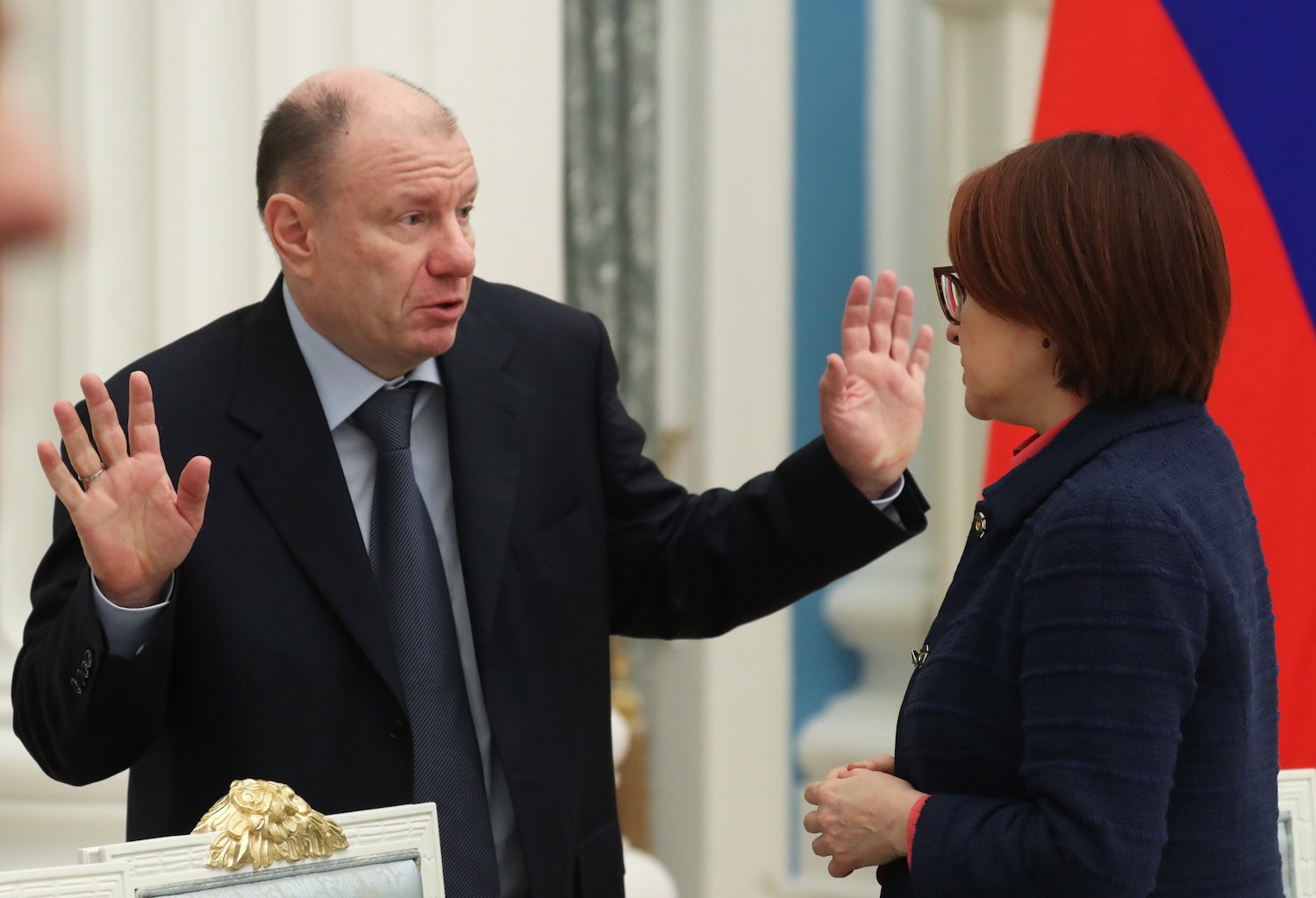
The Centre Pompidou in Paris is suspending a gift to the museum made by Vladimir Potanin, one of Russia’s wealthiest oligarchs, in light of the ongoing Russia-Ukraine War. The decision comes two months after Potanin resigned from the board of the Guggenheim Museum in New York.
The Centre Pompidou received two donations, totaling €1.3 million ($1.4 million), from Potanin’s foundation between 2016-21. But it has suspended a third payment of around $619,000. According to French newspaper Le Monde, which first reported on the gift last week, describing it as a “source of embarrassment,” the Centre Pompidou’s annual acquisitions budget is just €1.8 million ($1.9 million). So Potanin’s backing provided a significant boost to the institution’s resources.
The first donation of around $638,000 was used to acquire more than 250 Russian and Soviet artworks that were presented in the exhibition “Kollektsia! Contemporary Art in the USSR and Russia, 1950-2000”, held at the Centre Pompidou in 2016-17. It also financed the exhibition’s production and catalogue.
The works were chosen “in a common agreement by the two curators Olga Sviblova, founder of the Multimedia Art Museum of Moscow, and Nicolas Liucci-Goutnikov, a curator at the Centre Pompidou,” the Centre Pompidou told Artnet News in a statement, and “were subjected to the museum’s normal acquisition’s procedure.”
According to the museum, “the Potanin Foundation contacted the Centre Pompidou through people with links to France without originally proposing a specific project. At Olga Sviblova’s request, Bernard Blistène, then director of the Musée national d’art moderne, had the idea of proposing that the foundation help the museum build a collection reflecting on the course of unofficial art in the USSR since the end of the 1950s.”
The institution says that around 300 further Soviet and Russian artworks were donated from other collectors, artists and the families of artists.
The Centre Pompidou subsequently received a second payment from Potanin’s foundation that was used to develop a research program into the collection launched in 2017, which included conferences and symposiums, publications of texts, and grants for young researchers and curators.
Asked if the Centre Pompidou intended to return any of the artworks purchased with the grant from Potanin’s foundation, the museum said: “The works donated by the Potanin Foundation belong to the national public collections.”
The Centre Pompidou has suspended the transfer of a third payment, however, which was scheduled for next autumn and would have provided funding for further initiatives. The museum originally accepted the donation from Potanin’s foundation after obtaining the green light from the French culture and foreign affairs ministries.
Potanin’s foundation referred to the “Kollektsia!” initiative and donation, as well as philanthropy towards Moscow’s Tretyakov Gallery, in its application for the Corporate Art Awards held at the European Parliament in Brussels in November 2018. The foundation won an award for “the best philanthropic program to promote Russian Art globally.”
Other French museums have also benefited from Potanin’s philanthropy. In 2003, the exhibition “When Russia Spoke French: Paris-St Petersburg, 1800-1830” at Hôtel national des Invalides, featuring works lent by Russia’s state museums, was organized with support from Potanin’s foundation.
And in 2007, France’s then culture minister, Renaud Donnedieu de Vabres, made Potanin a “knight in the order of arts and letters.”
Potanin has also been an important benefactor in the U.S. Two months ago, Artnet News reported that Potanin had resigned from the board of the Guggenheim Museum, where he had served for two decades. Potanin’s foundation had sponsored several exhibitions at the New York museum, including the current show, “Vasily Kandinsky: Around the Circle,” according to the New York Times.
Potanin’s foundation also gave $5 million to the Kennedy Center for the Performing Arts in Washington, D.C., in 2011, which was used to renovate one of its spaces. According to the terms of the foundation’s gift, the room was named the “Russian Lounge” and featured Russian art and culture. This year, after the expiration of the naming rights contract, the Kennedy Center rebranded it as the Opera House Circles Lounge.
Potanin is one of the few Yeltsin-era billionaires to avoid any significant Western sanctions so far; only Canada has sanctioned him, according to Forbes, which estimates his fortune at $17.3bn, down by $9.7bn over the last year.
He is president of Norilsk Nickel, the world’s largest producer of refined nickel and palladium, of which he owns a 36 percent stake. Potanin also has an investment holding company, Interros, which has continued to expand its activities, despite the Russia-Ukraine war. Last month, Interros reacquired the Russian banking group Rosbank from French firm Société Générale.
According to Reuters, Interros has also just acquired United Card Services, the Russian arm of U.S. firm Global Payments Inc, and a 35 percent stake in TCS Group Holding, a Russian online retail financial services group.